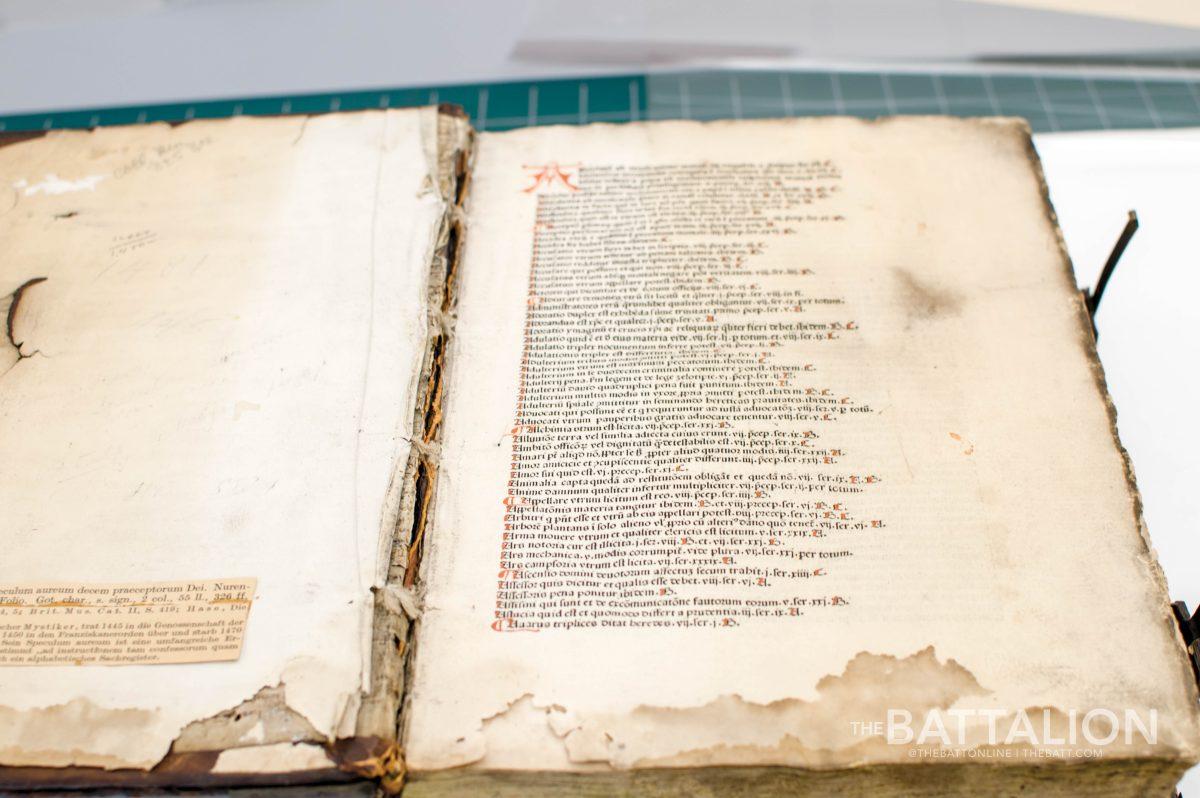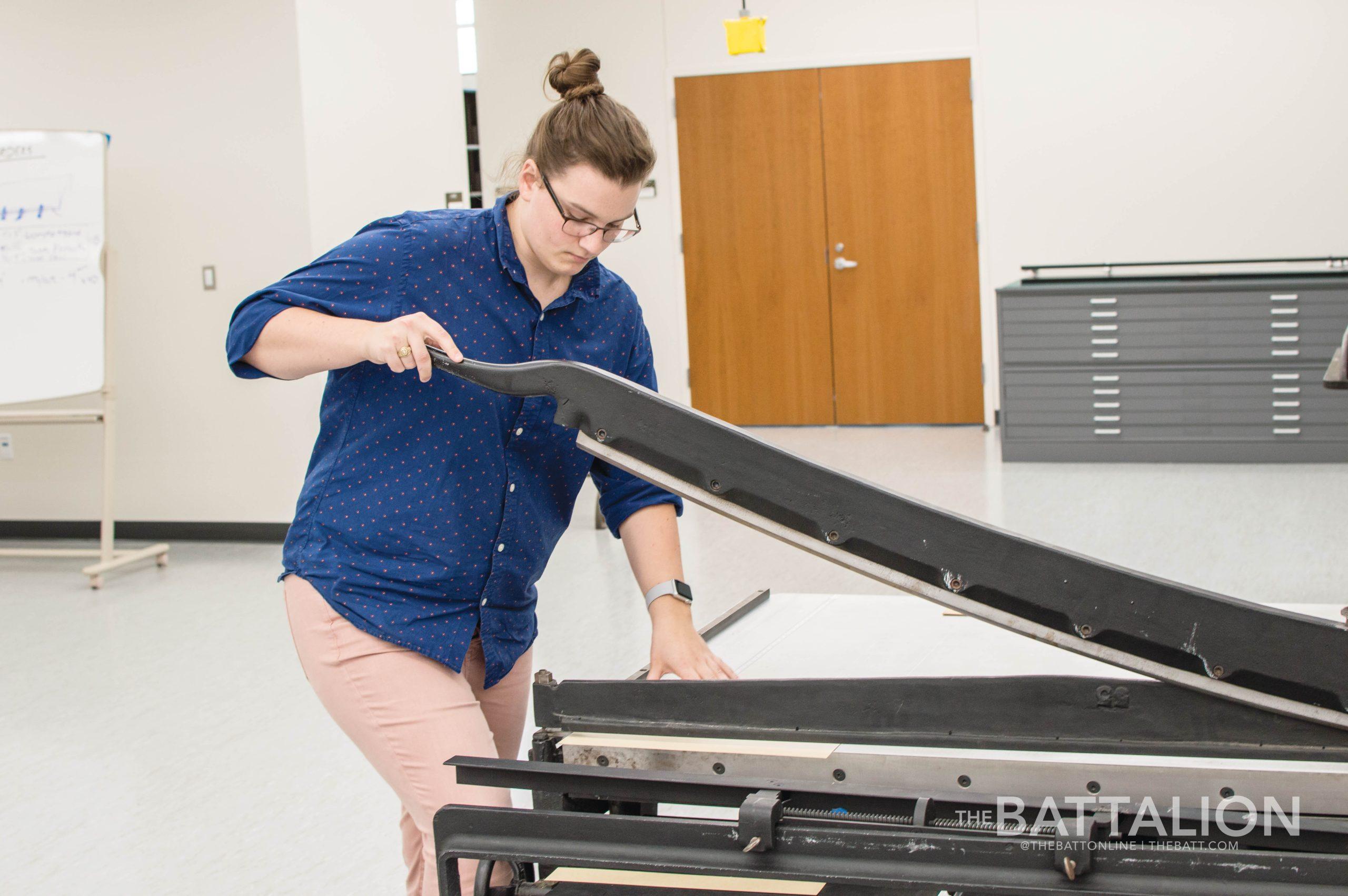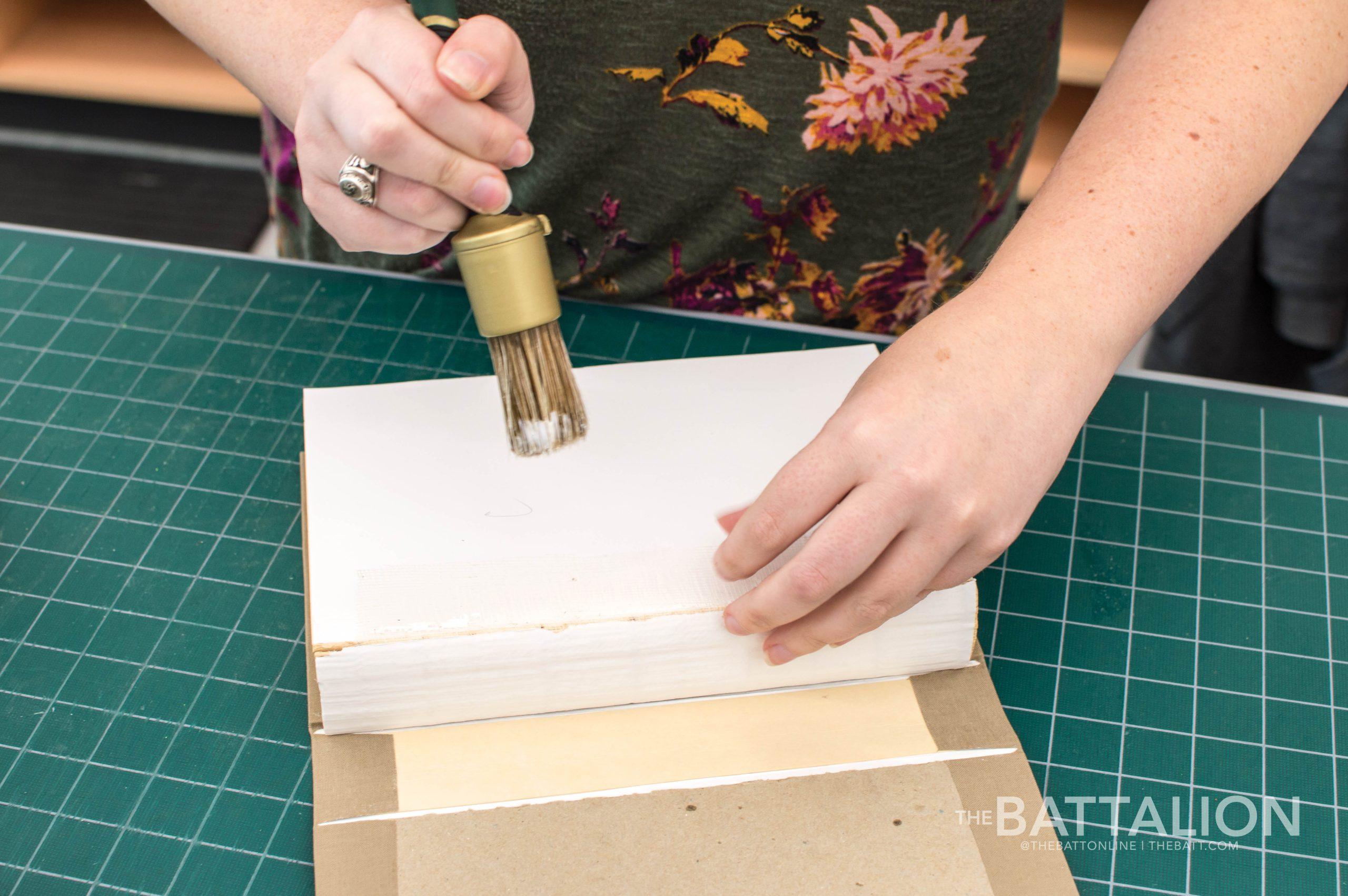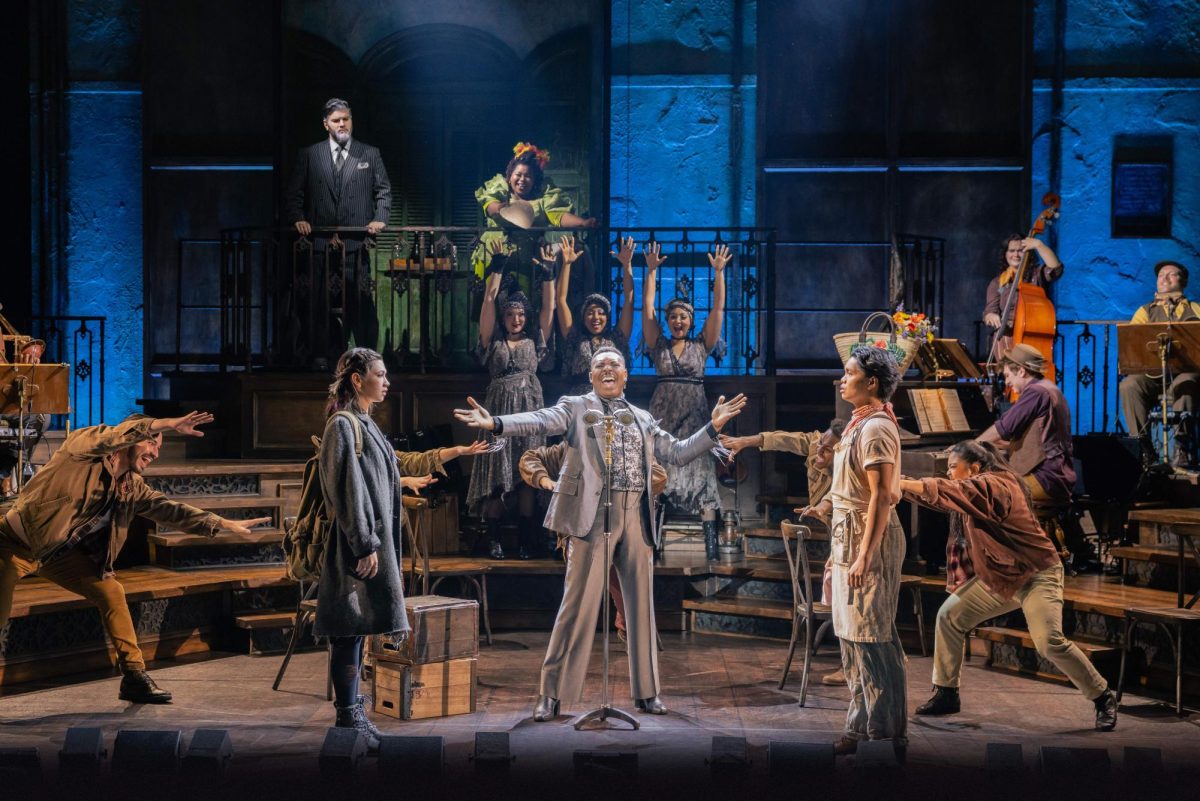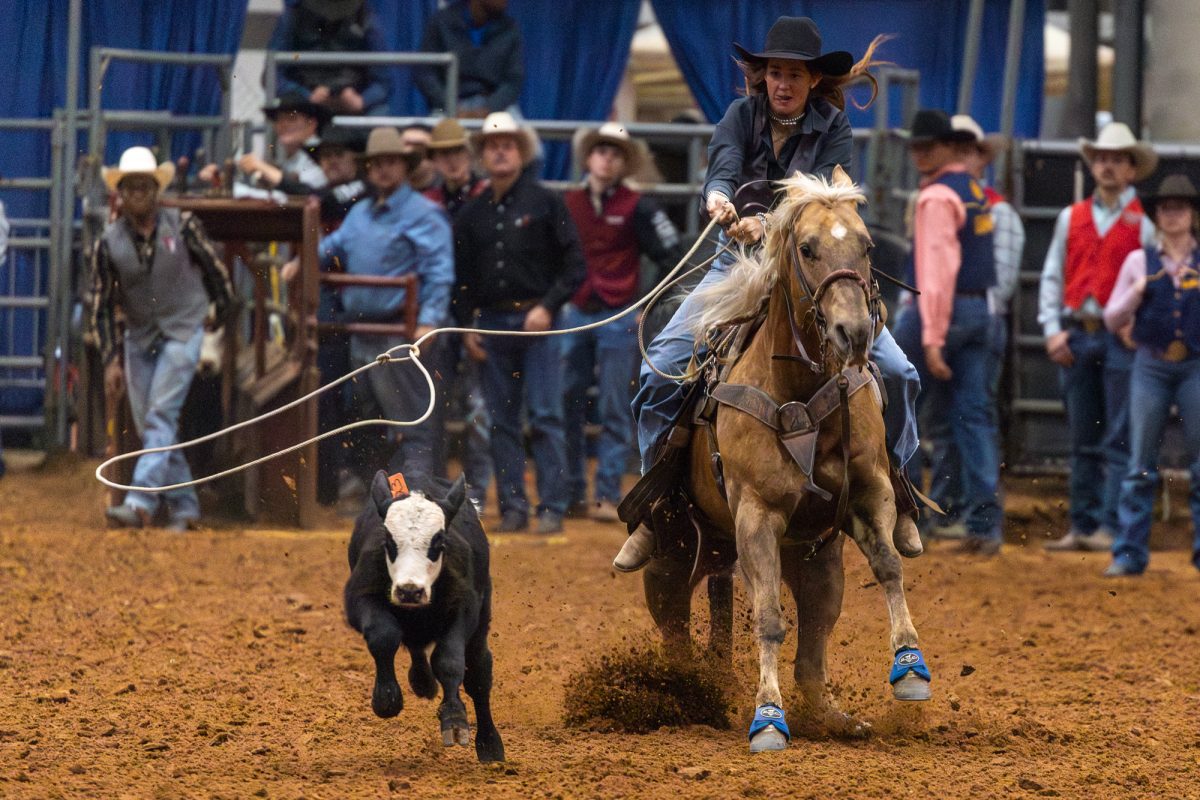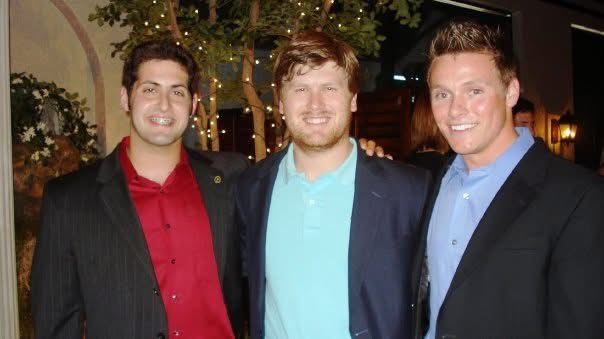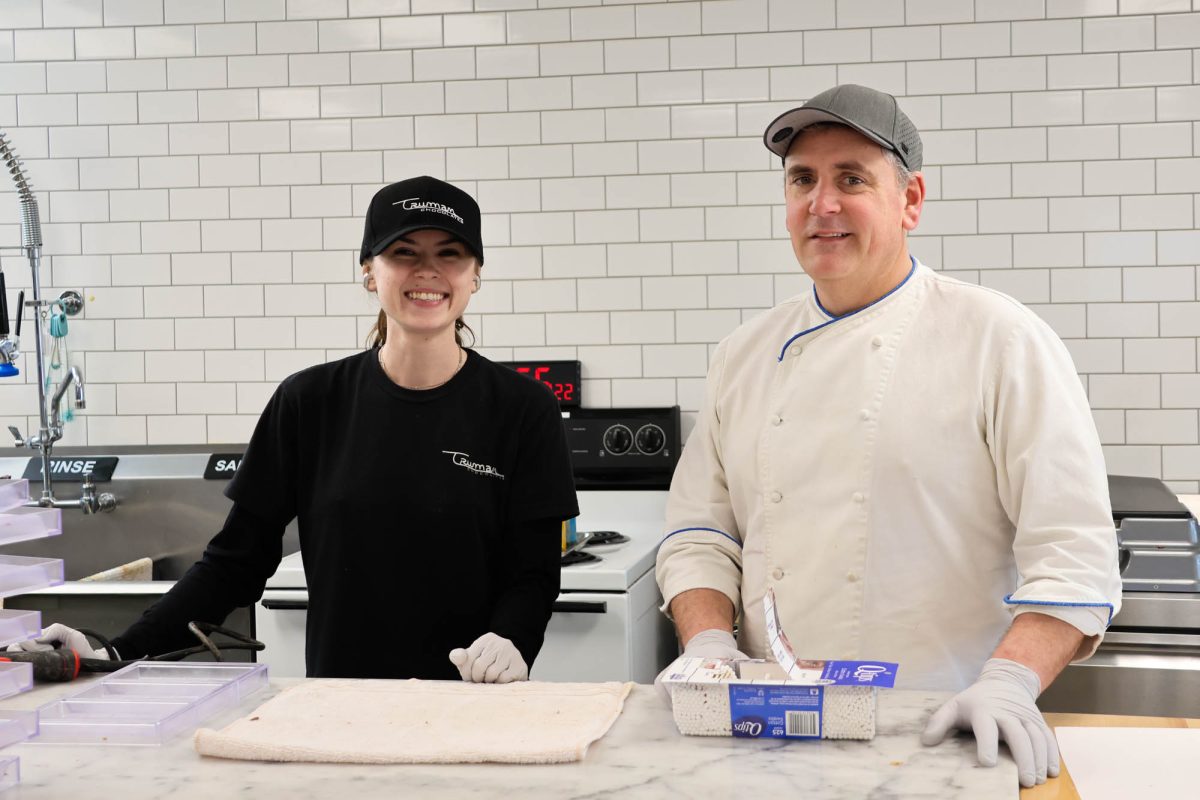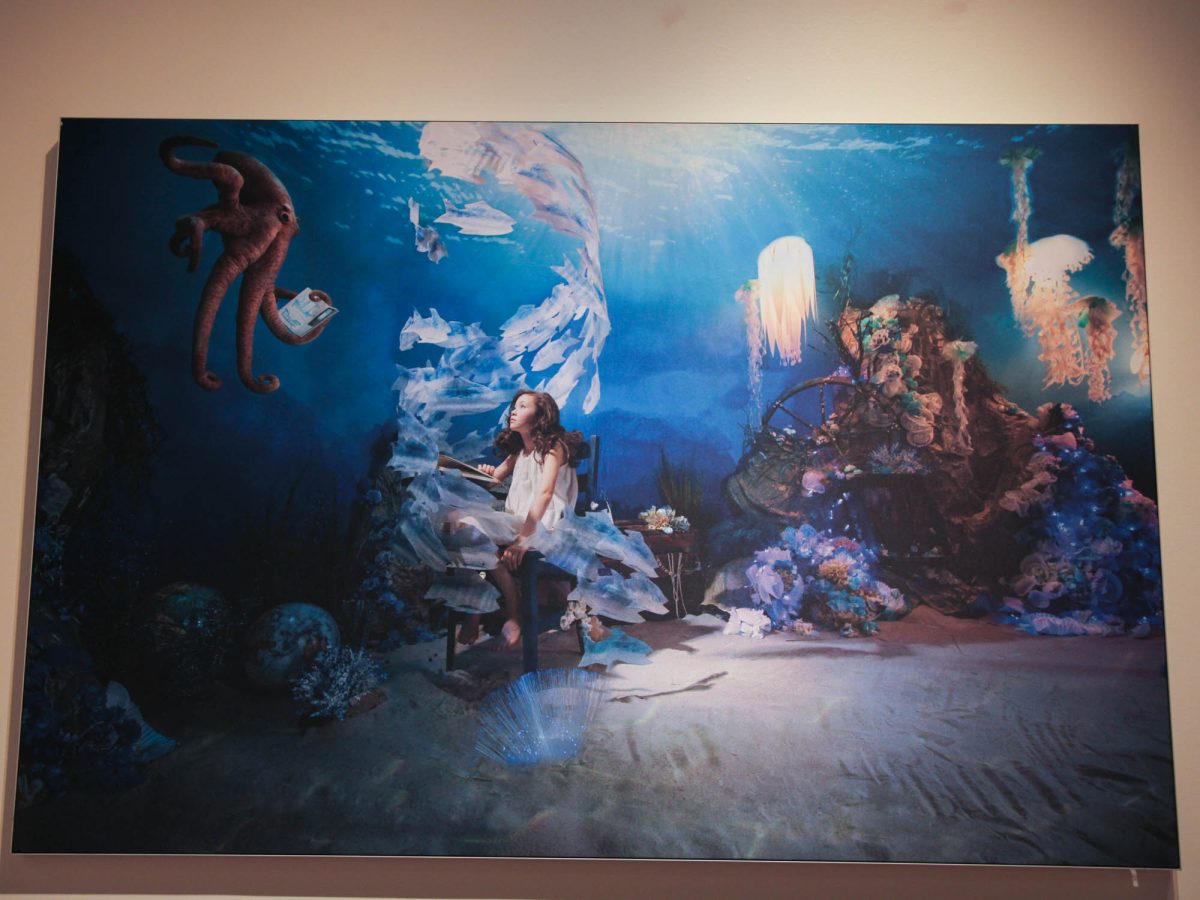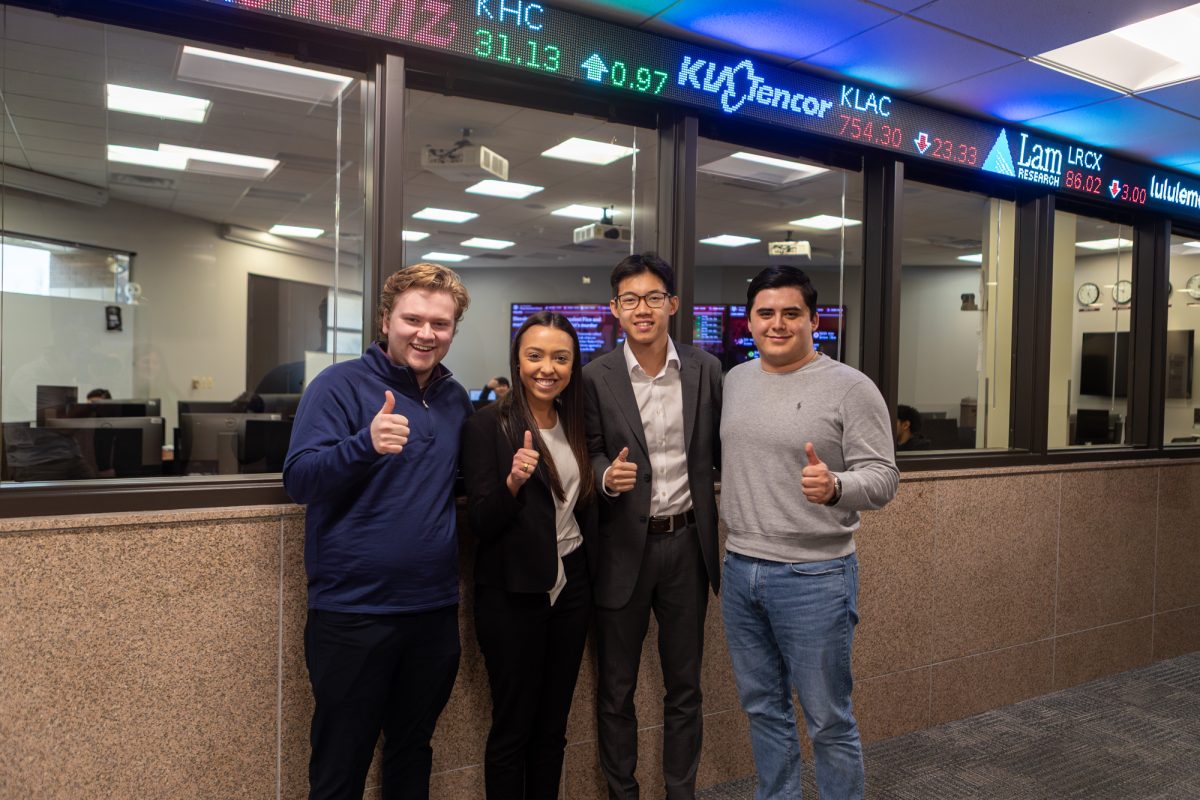The Texas A&M Preservation and Conservation Laboratory works diligently to ensure library materials are preserved for the future.
The lab is tasked with maintaining the university’s collections of books and artifacts for long-term accessibility. The lab is located on the fourth floor of the Evans Library Annex, where staff and student workers handle general circulation collections along with rare items from the various A&M libraries. Although the space is for staff and student workers only, tours can be given to groups upon request.
The lab is tasked with maintaining the university’s collections of books and artifacts for long-term accessibility. The lab is located on the fourth floor of the Evans Library Annex, where staff and student workers handle general circulation collections along with rare items from the various A&M libraries. Although the space is for staff and student workers only, tours can be given to groups upon request.
Conservator Jeanne Goodman said the type of work done in the lab is dependent on each item’s state and purpose. Books meant for everyday use are repaired with functionality in mind.
“These are books that circulate; they’re not rare items,” Goodman said. “These are books that are going to go in backpacks; they’re going to go in book drops; they’re going to be open completely flat [for] students [to] look at. [The work of the lab] protects them better and makes them easy to handle.”
“These are books that circulate; they’re not rare items,” Goodman said. “These are books that are going to go in backpacks; they’re going to go in book drops; they’re going to be open completely flat [for] students [to] look at. [The work of the lab] protects them better and makes them easy to handle.”
Rare items require specialized care to maintain the original structure so that scholars can draw conclusions by experiencing the items as they were meant to be used.
“When we think of special collections, we think of it more as an artifact as opposed to a functional item,” Goodman said. “We have to make sure that we’re making contextual decisions with the item and not changing some of that artifactual knowledge.”
Goodman said the lab takes every precaution — such as controlling humidity and temperature — to ensure the future availability of the items.
“When we think of special collections, we think of it more as an artifact as opposed to a functional item,” Goodman said. “We have to make sure that we’re making contextual decisions with the item and not changing some of that artifactual knowledge.”
Goodman said the lab takes every precaution — such as controlling humidity and temperature — to ensure the future availability of the items.
“This is for future Aggies,” Goodman said. “The decisions that we make here affect the future of the items… We have to think in long terms. Once I’m not here anymore, these artifacts should be here 50 or 100 or 200 years or more.”
Student workers have the opportunity to learn from the ground up, Goodman said. They handle work related to general circulating collections, helping to make book covers and binding.
Preservation assistant Madilene Byerly, Class of 2018, said she began working as a student in book repair. After graduating, she moved to the special collections at the library.
Student workers have the opportunity to learn from the ground up, Goodman said. They handle work related to general circulating collections, helping to make book covers and binding.
Preservation assistant Madilene Byerly, Class of 2018, said she began working as a student in book repair. After graduating, she moved to the special collections at the library.
“I’ve always had a passion for things that are old,” Byerly said. “I think it’s really important to hold on to that and to preserve it for the future for people who may not have had the opportunity to experience things.”
Nuclear engineering senior Skyler Stohner said her passion for books led her to work at the lab. Stohner said getting to work on books that can be as old as pre-colonial America is enjoyable because she plays a part in preserving knowledge.
“Sure, not all these books get looked at every day, but eventually someone somewhere is going to need something inside one of them, and it’s important that it’s there,” Stohner said.
Nuclear engineering senior Skyler Stohner said her passion for books led her to work at the lab. Stohner said getting to work on books that can be as old as pre-colonial America is enjoyable because she plays a part in preserving knowledge.
“Sure, not all these books get looked at every day, but eventually someone somewhere is going to need something inside one of them, and it’s important that it’s there,” Stohner said.




